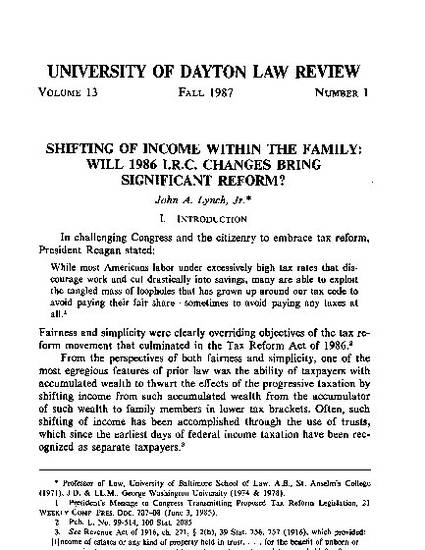
Article
Shifting of Income Within the Family: Will 1986 I.R.C. Changes Bring Significant Reform
All Faculty Scholarship
Document Type
Article
Publication Date
10-1-1987
Disciplines
- Law,
- Taxation-Federal and
- Tax Law
Abstract
In challenging Congress and the citizenry to embrace tax reform, President Reagan stated:
While most Americans labor under excessively high tax rates that discourage work and cut drastically into savings, many are able to exploit the tangled mass of loopholes that has grown up around our tax code to avoid paying their fair share-sometimes to avoid paying any taxes at all.
Fairness and simplicity were clearly overriding objectives of the tax reform movement that culminated in the Tax Reform Act of 1986.
From the perspectives of both fairness and simplicity, one of the most egregious features of prior law was the ability of taxpayers with accumulated wealth to thwart the effects of the progressive taxation by shifting income from such accumulated wealth from the accumulator of such wealth to family members in lower tax brackets. Often, such shifting of income has been accomplished through the use of trusts, which since the earliest days of federal income taxation have been recognized as separate taxpayers.
Citation Information
Shifting of Income Within the Family: Will 1986 I.R.C. Changes Bring Significant Reform, 13 U. Dayton L. Rev. 1 (1987)